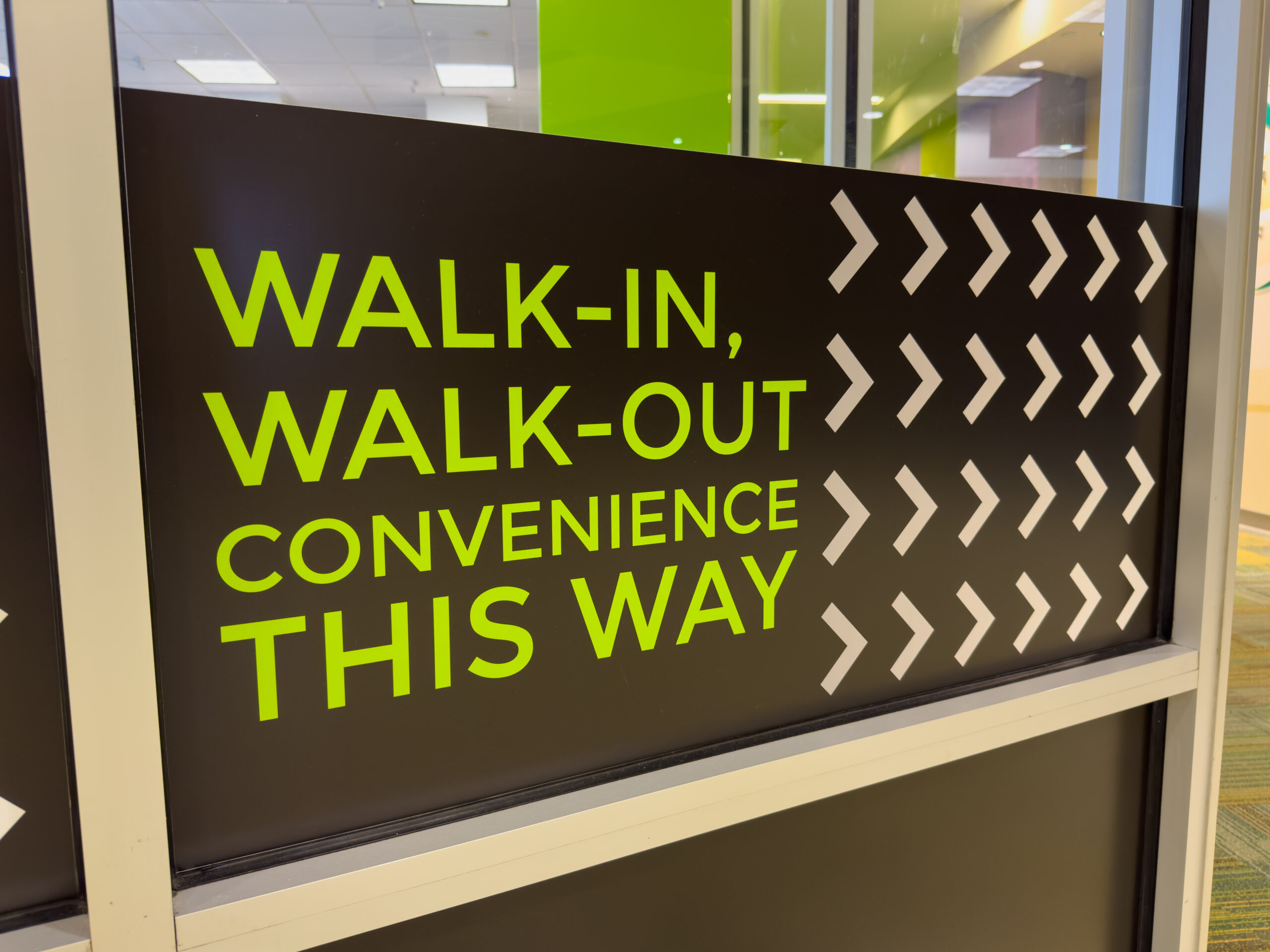OPINION: New on-campus store is not as convenient as promised

The depersonalization of the shopping experience started with self checkouts, which make up 40% of checkout options. A new advancement has made its way into the spotlight – unstaffed, AI-run stores.
USF’s new AI-powered convenience store, 813 Quick Eats, opened over Labor Day weekend. Some students have complained that the shopping experience wasn’t as smooth as expected.
This new store sets a dangerous precedent for the university. Many students rely on on-campus shops and restaurants for employment. If this trend continues, those options will become even more scarce.
While incorporating AI into on-campus stores seems inevitable, USF needs to give students the chance to work alongside this new technology. This will maintain a good experience for shoppers, and help sustain a critical source of income for many students.
Students must download the QuickEats app and scan it at the door to enter the store. Then, cameras and weight-sensing shelves monitor what shoppers pick up.
They don’t have to scan anything, and there is no cashier to visit to check out. AI keeps track of what shoppers buy and emails them a receipt after they leave the store, according to Aramark Resident District manager David Disalvo.
The store offers a speedy shopping experience, but those jobs will become more difficult to find if the university continues this trend of cashier-free stores.
The shops in and around campus provide valuable income opportunities for USF students, with 800 working in dining services alone.
USF students have been struggling to afford tuition, housing and groceries. Recent inflation and housing price increases hit students hard.
Of 103 USF students surveyed in an April poll from The Oracle, 80% of students reported that their housing is at least partially paid for by job income, and 27% reported taking up a job specifically to pay for housing.
On-campus work opportunities are more valuable than ever.
With an average shopping time of 85 seconds, the store does make it possible for students to be in and out very quickly, according to DiSalvo. However, speed does not always equate to a better shopping experience.
Since the store is run by AI, many students don’t know who to ask if they have questions or issues while shopping.
“Sometimes with tap to pay, it doesn’t let you in, so you’re just having to struggle there for a while,” said junior health science major Yerli Velasco.
Sophomore biomedical sciences major Phoebe Almero was also concerned about the lack of store personnel.
She said the app was confusing and there was no one to help her navigate the process of setting it up.
An onsite employee could help these students with their technical issues immediately and make the whole process smoother.
Not only is it important to have someone there to help if things go wrong, but human interaction greatly improves the shopping experience – and most customers prefer it. In fact, 64% of people prefer to interact with a human employee as opposed to robots and other technology while shopping.
USF needs to give students the opportunity to work with AI by opening positions for them rather than relying on this new technology to run the store.
New on-campus stores give the university an opportunity to help students make money, so it’s important it doesn’t let AI take that away.
It’s great that students have another option for food and other necessities on campus, but employing in-person staff would improve the shopping experience for customers and provide students with valuable job opportunities.







